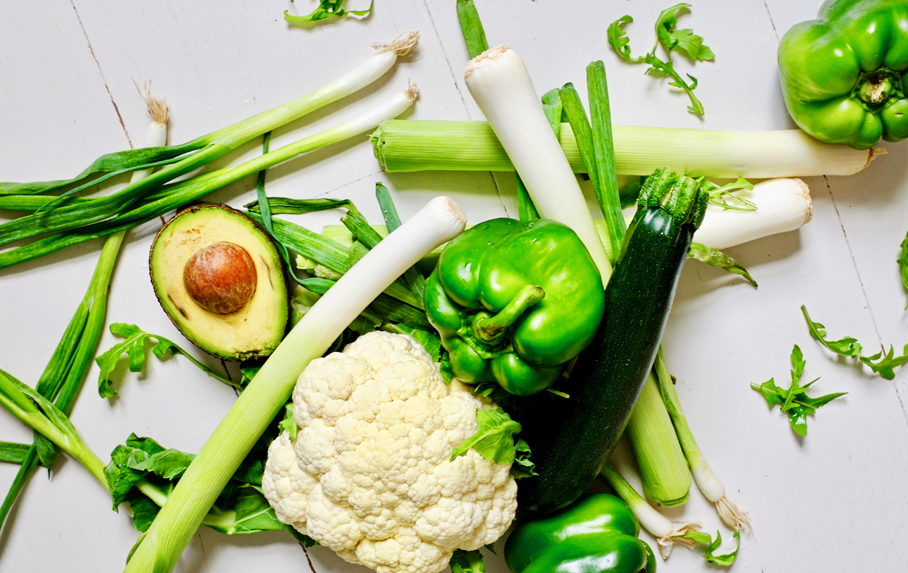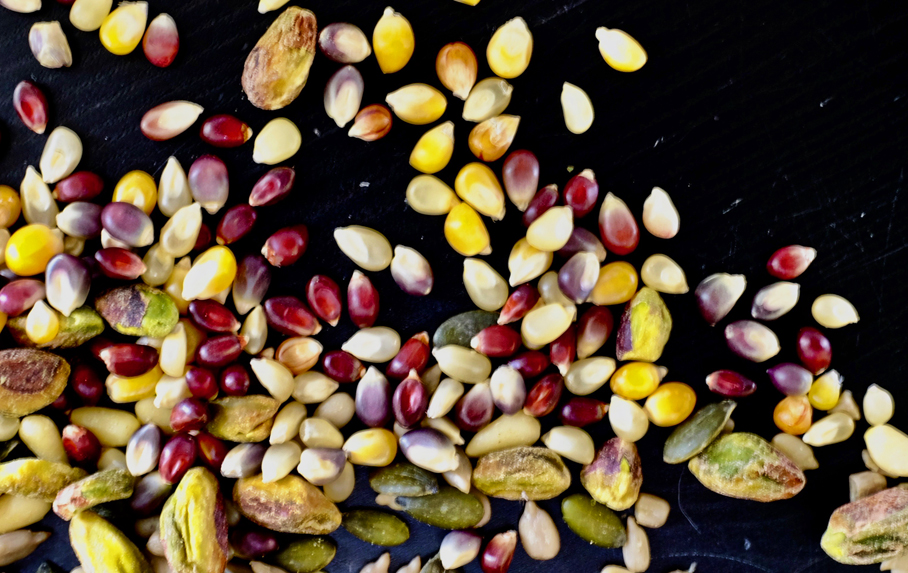If you’re feeling a little confused about FODMAPs, let this article swat you up on the essentials ready to casually slip into conversation (cue smug slide of imaginary glasses up nose). FODMAP is a mouthful of an acronym to describe a group of fermentable carbohydrates that are found in everyday foods like certain dairy products, grains, legumes and some fruits and vegetables.
“FODMAP stands for Fermentable Oligosaccharides, Disaccharides, Monosaccharides and Polyols” (click here for an easy table highlighting some high and low FODMAP foods).

Fructose, lactose and polyols can be poorly absorbed by your small intestine, moving through into your large intestine where they act as a gourmet meal for your beneficial gut microbes (to read more on your gut microbiome, click here). Alternatively, oligosaccharides are not absorbed by anyone, though only a certain number of people have problematic symptoms as a result of this.
These types of carbohydrates are fermented in the colon, a process which attracts water into the bowel and produces gas, and while this may have no effect for most people, for some this can cause uncomfortable bloating, abdominal discomfort and wind. For others, the water pulled into the bowel may also result in diarrhoea or constipation, common symptoms of Irritable Bowel Syndrome (IBS).
Whoa Irritable Bowel Syndrome
Ever felt like that tight swelling of your stomach due to bloating? Or do you have a mental matrix map of the closest bathrooms in case you need to make a dash for it? Sounds like you could have Irritable Bowel Syndrome (IBS). While there’s no official test for diagnosing IBS, diagnosis is made by your doctor based on the frequency of bloating, diarrhoea or constipation and abdominal discomfort, after having ruled out anything more sinister like coeliac disease or bowel cancer.
“Approximately one in seven Australians suffer from this IBS”
Approximately one in seven Australians suffer from this IBS. However, recent research from Monash University and Kings College London has suggested that by following a low FODMAP diet 75% of IBS suffers found improvement in their symptoms in a matter of weeks. That’s a pretty hot stat right there. The low FODMAP approach looks at the total amount of fermentable carbohydrates in your diet and rather than cutting them all out completely, a balance is found by limiting how much of the specific problematic FODMAP an individual can tolerate. This gives your beneficial gut bacteria something to nosh on, but also helps to improve and reduce symptoms for some suffers of IBS.

The good news: a low FODMAP diet is not for always and forever
The low FODMAP diet is still a relatively new concept, and the process can be confusing. The diet is complex and research suggest that it can be one, all or a combination of FODMAP’s that can give IBS symptoms. It’s a restrictive diet that is best done with a FODMAP-trained specialist dietitian over a 6 to 8-week period. Once symptoms settle foods are gradually re-introduced over 2 to 3 months by one type of FODMAP at a time, checking your tolerance by identifying those that trigger your symptoms. This is called the ‘re-challenge phase’.
If you aren’t sensitive to all of the F/O/D/M/and Ps types, it’s useful to know so that you don’t unnecessarily cut out a variety of foods that we need to nourish our bods (and make meals a ton more fun), helping to create for you a personalised diet that balances between managing your symptoms and optimal nutrition. To make things even more confusing, FODMAPs are present in different quantities in different foods, so while you may manage say a quarter of an avocado without any issues, having a half an avo might be too much for your stomach to deal with. It’s important to remember that FODMAPs do play an important role in the health of our gut microbiome, and it’s likely that going completely FODMAP free over a long period may have a negative impact on the diversity of our gut bacteria, and long-term health.

If you’d like to know out more here are some useful apps and websites:
• Monash FODMAP website
• Monash FODMAP app and guide
• To find a FODMAP specialist dietitian
• The Gastroenterology Society of Australia (GESA) resource on a Low FODMAP diet






